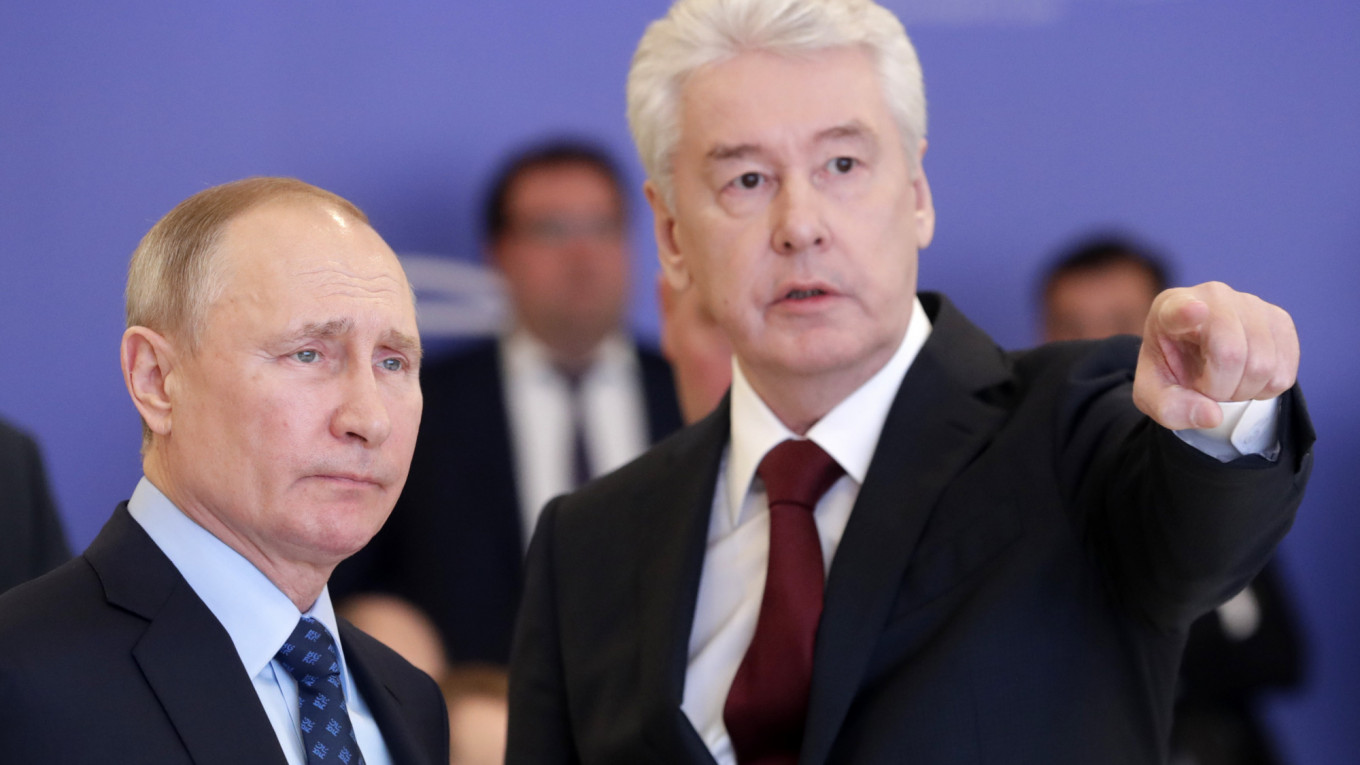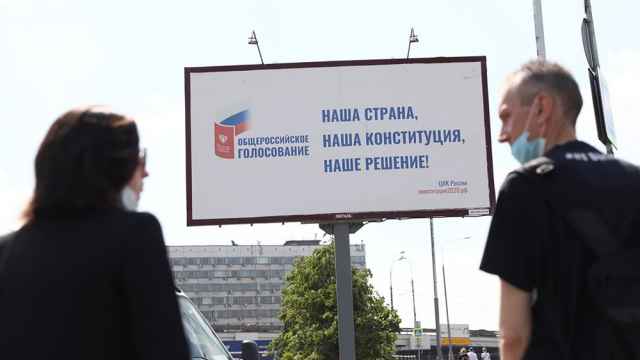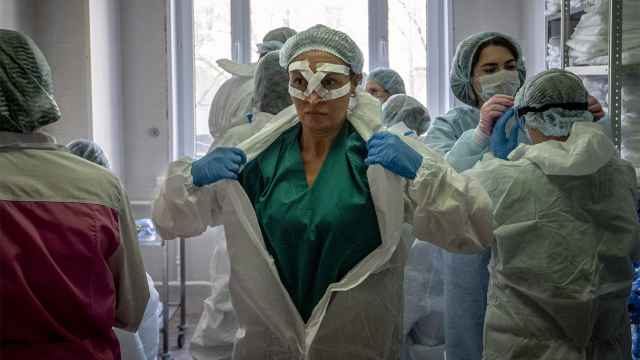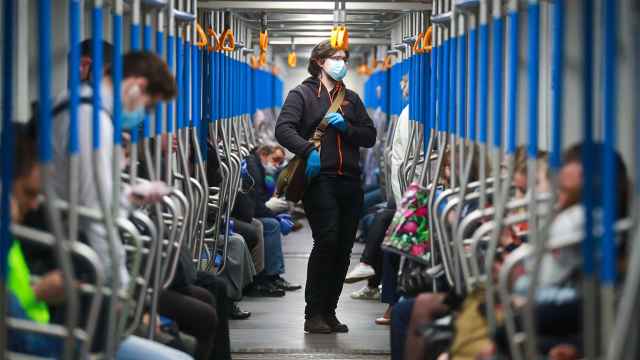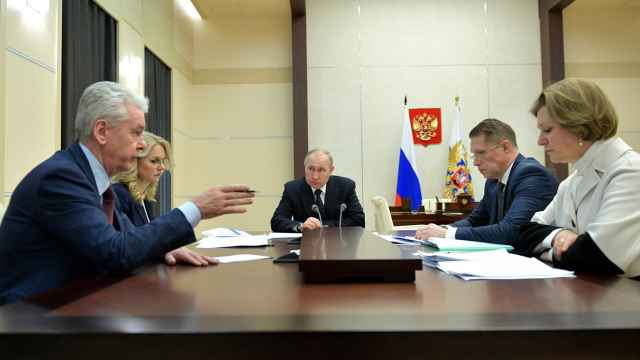At a televised meeting with Vladimir Putin, Moscow Mayor Sergei Sobyanin flatly told the president that official figures on coronavirus cases were far from the reality.
That's because people are staying home sick and because there has not been enough testing, he said Tuesday, so "no one knows the real picture."
After that reality check, the official narrative changed swiftly: Putin, who had called the situation "under control," on Wednesday gave a grim-faced address to the nation.
"Putin signed up to Sobyanin's position," opposition politician Vladimir Ryzhkov said on the popular Echo of Moscow radio station.
Sobyanin, mayor since 2010 of the capital of 12 million people, comes across as dour and uncharismatic in public appearances.
Yet the 61-year-old Siberian has become a frontline figure in the coronavirus crisis as head of a task force for the entire country.
He announced stricter measures for Muscovites while Putin held back from a nationwide lockdown.
Next week has now been declared work-free by Putin but he has given little guidance on how people should behave.
On Tuesday, Sobyanin ordered shops except those selling food and essentials to close in Moscow along with restaurants, cafes and parks. He also recommended that Russians from other regions not visit the capital.
And he has ordered the construction of a huge virus hospital outside Moscow that he says will be completed in weeks.
Moscow, a hub for international flights, has seen the most confirmed Russian cases by far, and Sobyanin's role is crucial in managing the epidemic.
Putin's evident trust in the mayor has given him a high-profile role despite his lack of flair with the public.
"Sobyanin's task now is to be at the cutting edge of the main problem — the coronavirus. That shows he is trusted by the president," said Konstantin Kalachev, who heads the Political Expert Group think tank.
"He's a political heavyweight with the background and resources to help him manage and organise effectively."
NeZygar Telegram, a popular messaging app that purports to have access to Kremlin insiders wrote: "Today Sobyanin is the second in power after Putin. That's the political reality."
Sobyanin led Putin's presidential administration for five years, a key backstage role.
As mayor he has transformed Moscow's crumbling streets and parks into gleaming, hipster-oriented urban spaces. But he is far from universally popular.
For example, he pushed through a vast and controversial resettlement programme of residents from Soviet-era blocks into enormous towers.
The mayor also backed a crackdown on opposition protests, with riot police at unsanctioned demonstrations stepping up detentions, and young protesters facing criminal charges and jail terms.
"The role of 'prime minister for the coronavirus' is natural for Sobyanin," said Andrei Kolesnikov of Carnegie Center.
"He's the mayor of Moscow, the most dangerous city in Russia in terms of virus spread."
Prime Minister Mikhail Mishustin is in charge of executing policy, but the former tax chief has only had a few months in the job.
Moscow confirmed its first coronavirus case on March 2. It now has declared three deaths and 703 cases, more than half of the national tally of 1,036.
And while Sobyanin's comments to Putin might appear clumsy and somewhat daring, commentators suggest the Kremlin in fact tasked him with bearing bad news.
"He and Putin are working as a united team and measures are taken jointly," said Carnegie Center analyst Kolesnikov.
"It's leadership by a team, but Putin has the last word."
A Message from The Moscow Times:
Dear readers,
We are facing unprecedented challenges. Russia's Prosecutor General's Office has designated The Moscow Times as an "undesirable" organization, criminalizing our work and putting our staff at risk of prosecution. This follows our earlier unjust labeling as a "foreign agent."
These actions are direct attempts to silence independent journalism in Russia. The authorities claim our work "discredits the decisions of the Russian leadership." We see things differently: we strive to provide accurate, unbiased reporting on Russia.
We, the journalists of The Moscow Times, refuse to be silenced. But to continue our work, we need your help.
Your support, no matter how small, makes a world of difference. If you can, please support us monthly starting from just $2. It's quick to set up, and every contribution makes a significant impact.
By supporting The Moscow Times, you're defending open, independent journalism in the face of repression. Thank you for standing with us.
Remind me later.


